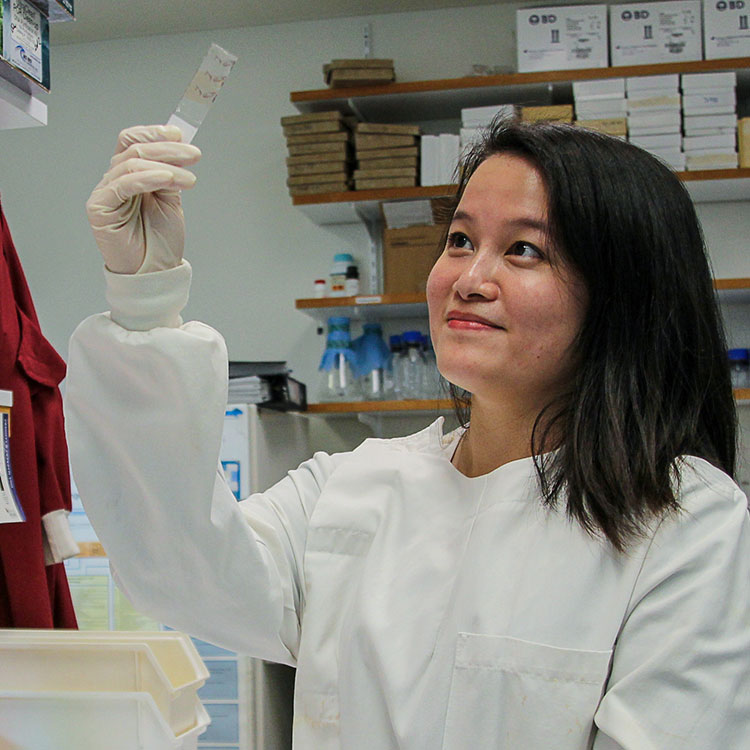Search
Research
Blinatumomab as bridging therapy in paediatric B-cell acute lymphoblastic leukaemia complicated by invasive fungal diseaseInvasive fungal disease (IFD) remains a challenging complication of treatment for paediatric acute leukaemia. Consensus fungal treatment guidelines recommend withholding chemotherapy to facilitate immune recovery in this setting, yet prolonged delays in leukaemia therapy increase risk of relapse.

News & Events
State Government boost for The Kids researchThe Kids Research Institute Australia researchers have been awarded five of eight State Government awards designed to help cover the hidden costs of conducting research.
Research
Australian Group on Antimicrobial Research surveillance outcome programs - bloodstream infections and antimicrobial resistance patterns from patients less than 18 years of ageFrom 1 January 2020 to 31 December 2021, thirty-eight institutions across Australia submitted data to the Australian Group on Antimicrobial Resistance (AGAR) from patients aged < 18 years (AGAR-Kids). Over the two years, 1,679 isolates were reported from 1,611 patients. This AGAR-Kids report aims to describe the population of children and adolescents with bacteraemia reported to AGAR and the proportion of resistant isolates.

Research
Whooping CoughWhooping cough (pertussis) is a highly contagious respiratory infection which causes a severe cough and can be particularly dangerous to babies under a year old. Vaccination is the best way to reduce the risk of whooping cough.
Research
Evaluation of Pediatric HIV Postexposure Prophylaxis Guideline Following Child Sexual Assault in Western AustraliaHIV postexposure prophylaxis (PEP) following child sexual assault (CSA) is recommended in select cases. High rates of poor adherence to PEP are reported. We evaluated adherence to the recommended management of children following CSA at the tertiary pediatric facility in Western Australia and compared our approach with international guidelines.

News & Events
Decades-old work picked up by Google’s DeepMind leads to global scientific breakthroughA researcher's work from 20 years ago has helped to crack one of biology’s biggest mysteries.

News & Events
Leading disease modeller appointed inaugural Fiona Stanley Chair of Child Health ResearchThe Kids Research Institute Australia and The University of Western Australia are proud to announce the appointment of the inaugural Fiona Stanley Chair of Child Health Research, Professor Melissa Penny.

News & Events
Call for national newborn screening for little-known CMV virusWestern Australian researchers advocate for a national newborn screening program for congenital CMV to prevent hearing loss and related disabilities in infants.
Research
Hospitalisation for bronchiolitis in infants is more common after elective caesarean deliveryThe authors previously reported an increased risk of hospitalisation for acute lower respiratory infection up to age 2 years in children delivered by...
Research
Hospitalisation with infection, asthma and allergy in Kawasaki disease patients and their families: genealogical analysis using linked population dataKawasaki disease results from an abnormal immunological response to one or more infectious triggers.
